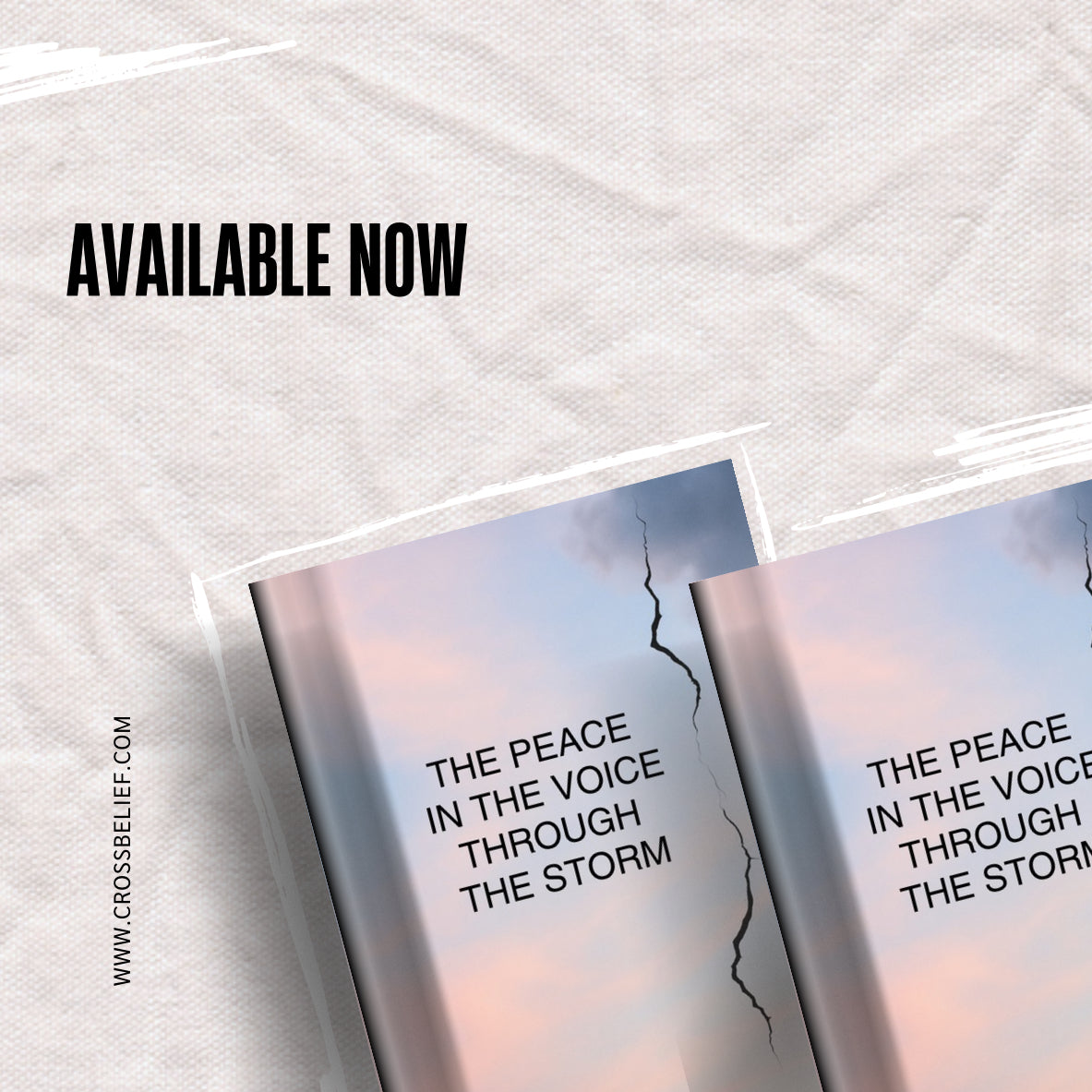My Store
The Peace in the Voice Through the Storm
The Peace in the Voice Through the Storm
Couldn't load pickup availability
A powerful story of trauma, truth, and the unwavering voice of God.
The Peace in the Voice Through the Storm is a deeply honest memoir about a woman’s journey through spiritual abuse, childhood trauma, mental health battles, and the quiet unraveling of everything she once believed—only to find true healing at the feet of Jesus.
With poetic vulnerability and biblical insight, Amaris invites readers into the sacred tension between survival and surrender. From Nigeria to the UK to Australia, from silence to restoration, this is a story of finding peace not in perfection, but in the presence of God.
If you’ve ever felt unseen, unworthy, or unheard, this book is for you.
_________________________
Critical Review of "The Peace in the Voice Through the Storm" by a silent reviewer.
"The Peace in the Voice Through the Storm" is presented as a deeply personal and raw narrative, exploring themes of trauma, betrayal, spiritual confusion, and the journey toward healing and peace through faith. The book, written in the voice of "Amaris," is described not as a work of "polished theology" but as "truth, raw and unrehearsed, shaped into narrative," interwoven with the author's and others' lived experiences.
Strengths:
Authentic and Vulnerable Voice: The book's primary strength lies in its unflinching honesty and vulnerability. It aims to resonate with readers who have experienced similar struggles by sharing deeply personal and often painful experiences through the character of Amaris. This raw approach fosters a strong emotional connection, allowing readers to feel seen and understood.
Focus on Faith-Based Healing: A central message of the book is the transformative power of faith and finding peace with God amidst adversity. It emphasizes God's consistent presence and guidance during difficult times, aiming to offer comfort, encouragement, and a path toward wholeness.
Direct Engagement with Difficult Topics: The book bravely confronts sensitive and often unspoken issues, including childhood molestation, emotional neglect, spiritual manipulation, and the profound, lasting impact of trauma. This directness can be validating for individuals who have faced similar challenges.
Emphasis on Discernment and Truth-Seeking: A significant undercurrent is the importance of discernment—learning to distinguish genuine love and faith from manipulation, false teachings, and controlling doctrines. The author encourages readers to question and actively seek truth, even when it leads to uncomfortable realizations.
Structured Journey Towards Healing: The book is organized into clear sections: "The Breaking" (Childhood, Trauma, Confusion), "The Reckoning" (Awareness, Faith, Internal Conflict), and "The Rising" (Recovery, Identity, Healing, Calling). This structure provides a roadmap for the healing journey, and the inclusion of journaling prompts and resources suggests a practical, interactive approach for readers.
Areas for Critical Consideration:
Narrative Repetition and Flow: While the "raw and unrehearsed" style is intentional, it sometimes leads to repetition of themes and experiences across different chapters, particularly concerning childhood trauma and spiritual manipulation. This could impact the overall narrative flow for some readers.
"Unpolished Theology": The explicit disclaimer that the book is "not a work of polished theology" sets expectations appropriately. However, readers seeking in-depth theological discourse or systematic arguments might find the focus heavily skewed toward personal spiritual experience rather than academic exploration.
Emotional Intensity: Given the deep dive into trauma, abuse, and betrayal, the book's content is emotionally intense. While this is essential for its purpose of addressing difficult experiences, readers should be prepared for a potentially heavy and challenging read.
In summary, "The Peace in the Voice Through the Storm" appears to be a powerful and resonant book for individuals grappling with past traumas and seeking spiritual healing. Its strength lies in its authenticity and focus on God's redemptive presence in the midst of suffering. While not a theological treatise, it serves as a compelling testimony and a guide for those on a journey to find peace and wholeness.
Share





